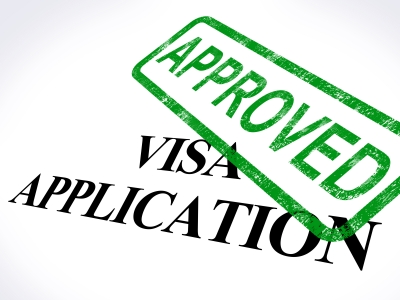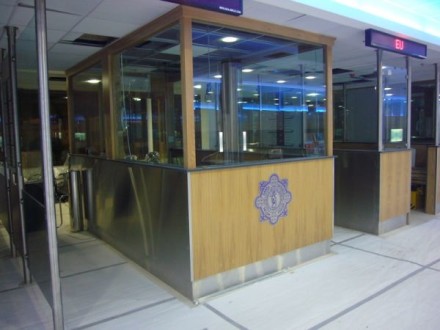This post may contain affiliate links. If you make a purchase through a link, I may receive a small commission, at no cost to you. These commissions help keep this website up and running, and I thank you for your support. Read my full disclosure here.
Disclaimer: Official policy and legislation regarding immigration continually changes. This information is meant to be used as a guide only. Please refer to the Irish Immigration and Naturalisation website for the latest and most up to date information.
Please be aware that this is only meant to be used as a guide. You can access free immigration legal advice through the voluntary service Free Legal Advice Centres (FLAC). The FLAC website provides details of their telephone and referral services, Legal Advice Centres, and online legal information.
Tips- Could you have the right to be an Irish citizen? You may be an Irish citizen, or entitled to citizenship, based on when and where you, your parents or your grandparents/great-grandparents were born – or for how long your parents lived in Ireland before your birth. Check whether you could be an Irish citizen by birth or descent.
- Helpful guide to migrant rights: The Crosscare Migrant Project has put together a guide to the rights of migrants in Ireland. This helpful summary guide provides guidance based on your category of residence stamp. [/su_service]
EU/EEA and Swiss National Students
EU/EEA and Swiss nationals are free to study in Ireland and there are no special requirements. You do not need to register with the immigration authorities when you arrive.
In order to be considered an EU/EEA applicant, a student must be someone who:
- is ordinarily resident in an EU/EEA member state and has completed full time post-primary education there or is ordinarily resident in an EU/EEA member state and has worked full-time in the EU/EEA for three of the five years immediately preceding admission to an Irish third level institution; or
- holds a passport from an EU/EEA state and has received all full-time post primary education in an EU/EEA member state; or
- has official refugee status and has been granted humanitarian leave to remain in Ireland;
- has been ordinarily resident in the EU/EEA for three of the five years immediately before admission to an Irish third level institution.
If you are under 23 years of age, your parent(s) must also live (i.e. be a resident for the purpose of taxation) in an EU Member State for three of the five years prior to student’s entry to an Irish College; or EEA countries (Norway, Iceland and Lichtenstein) or Switzerland.
UK Citizens
British students are eligible for the same fee structures as EU students in Ireland. The UK and Ireland have an additional agreement called the Common Travel Area (CTA) which is separate from EU law. Both governments have agreed that this will continue after the UK leaves the EU. If you are a British citizen living in Ireland, you have many of the same rights and entitlements as an Irish citizen.
Non EU/EEA and Swiss National Students
In order to study in Ireland, non EU/EEA and Swiss nationals must gain a full-time place in an Irish educational institution studying a course that is on the Interim List of Eligible Programmes (ILEP).
Students from Visa Exempt Countries
To find out if you need to apply for a visa to visit Ireland, refer to the list of visa exempt countries. If you do not require an entry visa, you do not require a student visa to study in Ireland. However, your passport will need to be valid for at least six months after the completion of your course. In addition, if you plan to study in Ireland for more than three months, you must register with the local Garda National Immigration Bureau after you arrive (see below) and provide evidence that you have access to €3,000.
Students from Non-Visa Exempt Countries
Students from countries requiring a visa to enter Ireland must apply for a student visa. If you plan to study in Ireland for less than 3 months, then you should apply for a ‘C study visa’. But if your course lasts longer than 3 months, you should apply for a ‘D study visa’. When you arrive in Ireland you must also register with the local Garda National Immigration Bureau (see below).
How to Apply for a Student Visa
You must apply for your student visa online using the AVATS online facility. Your application will only be processed once the online form is completed and the required documentation, passport photograph, and appropriate fee are received by the relevant office.
As part of the application process you will need to demonstrate that you have access to €7,000 to support yourself financially during your stay. In addition to this, you will need to provide evidence that you or a sponsor has access to at least €7,000 for each subsequent year of your studies – this in addition to the course fees for each of those years.
You will need to have a letter from your course provider (e.g. college or university) confirming that you have been accepted and evidence that the course fees have been paid in full. Your passport will also need to be valid for at least six months after the completion of your course.
Find out the full requirements for an Irish Student Visa here.

Student Permission to Work
Non-EU/EEA students are not entitled to Irish social welfare. However, those with a Stamp 2 are permitted to work up to 20 hours a week during term time. During the holiday periods May to August and from 15th December to 15th January, you can work up to 40 hours per week.
One semester students and students with Stamp 2A permission are not permitted to work.
Non-EEA graduates who hold a Stamp 2 may be eligible to remain in Ireland to seek employment following the successful completion of their studies. In order to be eligible, you need to have been awarded a qualification at Level 8 or above of the National Framework of Qualifications by a recognised Irish awarding body. Learn more about the Third Level Graduate Programme here.
Family Reunification Entitlement
In general, non-EEA students studying in Ireland have no entitlements to family reunification, i.e. you will not be able to bring your family with you. However, there are some exceptions, and in these cases there are strict government policies governing these circumstances outlined in the Irish Immigration Family Dependents page. This includes:
- PhD students
- students on a specific academic programme agreed between Ireland and another State, or
- students that can demonstrate private means
You can learn more in the Irish Immigration Policy Document on Non-EEA Family Reunification. Your education providers international student office should also be able to provide you with additional guidance.
Non EU/EEA Students Arriving in Ireland
All non-EU/EEA citizens, whether visa-required or not, are subject to ordinary immigration controls when they arrive in the country. Although you may have successfully obtained a visa (or be exempt from needing one), you may still be refused entry by Irish immigration officials when you arrive. When arriving in Ireland you should show your acceptance letter from your school, college, or university to the immigration officer so that you receive the correct immigration permission stamp in your passport.
Please note:
- The Immigration Officer decides who is allowed to enter Ireland.
- They will stamp your passport for either one or three months.
- This means that you must register with the Garda National Immigration Bureau within the time limit stamped on the passport if you plan to stay longer.
- To ensure that you have no difficulties, it is recommended that you have your documents ready to show the immigration officer when you arrive in Ireland.

Registering with the Garda National Immigration Bureau (GNIB)
All non EU/EEA students need to register at the Garda National Immigration Bureau (GNIB). In order to register, you need to visit your local immigration registration office and ask for the registration officer as soon as possible following your arrival in Ireland. Refer to the Garda website to find your closest GNIB.
You will need to provide the following information:
- Valid passport (and entry visa if applicable)
- Valid Student card
- Evidence of financial support:
- Students from visa exempt countries: If you plan to stay less than six months, then you must demonstrate that you have access to €500 per month to support yourself during your stay. If you plan to stay longer than six months, then the requirement is €3,000.
- Students from countries that are required to have a student visa: You must demonstrate that you have access to €7,000 to support yourself during your stay.
- Evidence of private medical health insurance.
- A credit/debit card for payment of the €300 fee.
The registration officer may also take your fingerprints, signature, and photo and may ask for further details.
On successful completion of your GNIB registration you will be issued with an Irish Residence Permit (IRP), a credit card sized plastic card. These cards are evidence that you are legally a resident in Ireland. It includes:
- Your name, photo, date of birth and registration number
- A brief description of your immigration permission (including your stamp number)
- A microchip with a copy of your photo, fingerprints and personal details
Further Information for Students
- For further information about studying in Ireland, refer to the Irish higher level education section of this website.
- The Crosscare Migrant Project have put together a guide to the rights of migrants in Ireland. This helpful summary guide provides guidance based on your category of residence stamp.
- Further guidance about student visas can be found here on the Citizens Information website and on the INIS Immigration for Students website.
- INIS have a very helpful FAQ guide for students.


Chloe
I am a single mom, can I take my kid to Ireland to study when I get the permission to a master programs.
Umo Akpan
Hello,
Thank you for this insightful article about studying in Ireland.
Kindly let me know if there are master’s program scholarship opportunities in Ireland.
Thank you.
jan claudine tabañag
Hello i have a host family will to sponsor me as their au pair im feom Philipines how can we start the process? Thank you